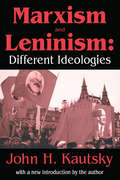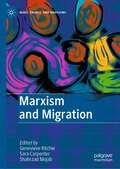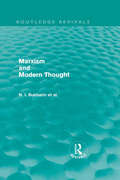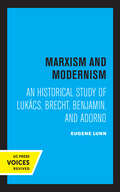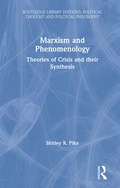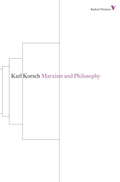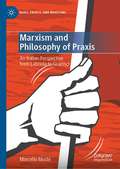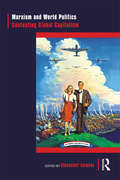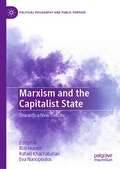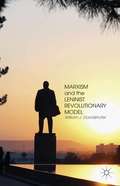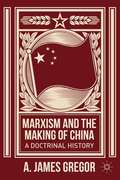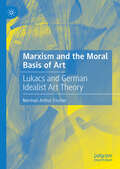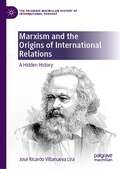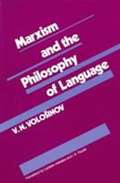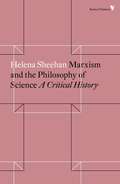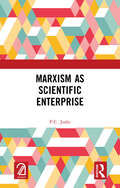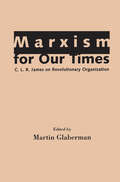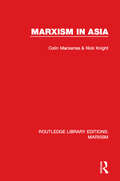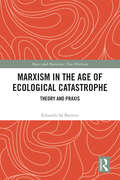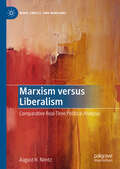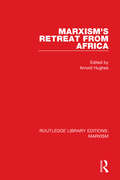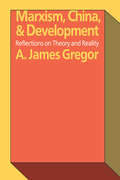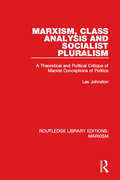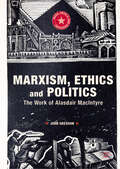- Table View
- List View
Marxism and Leninism: An Essay in the Sociology of Knowledge
by John H. KautskyOne of the pre-eminent scholars in the history and theory of European socialism, John Kautsky in this volume develops the argument that Marxism and Leninism are two quite different ideologies. He counterposes this view with the commonly accepted one of Leninism as simply one form that Marxism took in the course of its evolution. The easy identification of Marxism and Leninism with each other has been responsible for great confusion in the realm of both scholarly and political discourse.Kautsky develops his position within the tradition of the sociology of knowledge, by the close examination of the different meanings of the Marxist vocabulary as it was used by Marxists and Leninists. His frame of reference turns on the position of labor in turn-of-the-century industrial Europe and the role of modernizing intellectuals in underdeveloped countries. While the vocabulary used was often common to Marx and Lenin, Marxism was explicitly concerned with appeals to workers in industrial nations such as Germany and Austria, whereas Leninism appeals to revolutionaries in underdeveloped nations such as Russia and China.Whatever be the current assessment of the future of socialism and communism, Kautsky holds that it is important to study the core structure of both Marxism and Leninism, since they were major phenomena that powerfully affected the world in the twentieth century. Beyond that, in dealing with how different ideologies can be ensconced within the same rhetoric, the book offers an outstanding entrance into the sociology of knowledge as a tool for political analysis. This is a unique work in the function of language no less than the nature of ideology.The work is divided into five parts: Two environments, two ideologies, one terminology. The evolution of Marxism, its appeals in the German Empire. The evolution of Leninism, its appeals to strata involved in making modernizing revolutions. The differential outcomes of Marxism in the East and Leninism in the West. And finally, an examination of why Marxism and Leninism have been seen as a single ideology. In a new essay prepared for this new edition, Kautsky provides important autobiographical as well as historical reflections on how this book fits into the overall pattern of the author's work.
Marxism and Migration (Marx, Engels, and Marxisms)
by Sara Carpenter Shahrzad Mojab Genevieve RitchieThis book approaches migration from Marxist feminist, anti-imperialist, and anti-colonial perspectives. The present conditions of transnational migration, best described as a kind of social expulsion, include migrant caravans and detained unaccompanied children in the United States, thousands of migrant deaths at sea, the razing of self-organized refugee camps in Greece, and the massive dispersal of populations within and between countries. Placing patriarchal capitalism, imperialism, racialization, and fundamentalisms at the center of the analysis, Marxism and Migration helps build a more coherent and historically-informed discussion of the conditions of migration, resettlement, and resistance. Drawing upon a range of academic disciplines and diverse geopolitical regions, the book rethinks migrations from the vantage point of class struggle and seeks to ignite a more robust discussion of critical consciousness, racialization, militarization, and solidarity.
Marxism and Modern Thought (Routledge Revivals)
by N. I. Bukharin A. M. Deborin Y. M. Yuranovsky S. I. Vavilov V. L. Komarov A. I. TiumenievFirst published in English in 1935, this is a vital and stimulating critical appraisal of contemporary thought in the post-World War One era. Written by a selection of leading Marxist thinkers including Nikolai Bukharin, who would later become one of the most famous victims of Stalin's show trials, this work offers a Marxist critique of contemporary thought relating to philosophy, science and history. The authors all lean towards the view that the general tendency of modern thought is to abandon the historical method and to deny progress, with the conclusion that Marxism was the only historical and progressive outlook in science, philosophy and history in the period following the First World War and the Communist revolution in Russia. A fascinating document of great historical and political interest which offers an invaluable insight into contemporary thought in the Soviet Union of the 1930s.
Marxism and Modernism: An Historical Study of Lukacs, Brecht, Benjamin, and Adorno
by Eugene LunnThis title is part of UC Press's Voices Revived program, which commemorates University of California Press’s mission to seek out and cultivate the brightest minds and give them voice, reach, and impact. Drawing on a backlist dating to 1893, Voices Revived makes high-quality, peer-reviewed scholarship accessible once again using print-on-demand technology. This title was originally published in 1982.
Marxism and Phenomenology (Routledge Library Editions: Political Thought and Political Philosophy #45)
by Shirley R. PikeFirst published in 1986. The social sciences in the twentieth century have tended to fragment into different disciplines and schools of thought. Often these schools of thought are complete but closed systems of thought, permitting no exchange of ideas with other disciplines or schools. In view of this, one very interesting recent development has been the attempt by some Marxist theorists to develop a theory of phenomenological Marxism. At first sight the possibility of a liason between dialectical materialism and subjective idealism appears remote and indeed other Marxists have dismissed phenomenological Marxism as simplistic humanism, revisionist and incompatible with Marxist science. This book explores the possibilities and difficulties of synthesising two apparently disparate philosophical frameworks. It looks at the philosophical roots of the two frameworks and discusses the logic, epistemology, ontology and methodology of each. The author concludes that a synthesis between Marxism and phenomenology is not impossible on philosophical grounds.
Marxism and Philosophy
by Fred Halliday Karl KorschIn Marxism and Philosophy Korsch argues for a reexamination of the relationship between Marxist theory and bourgeois philosophy, and insists on the centrality of the Hegelian dialectic and a commitment to revolutionary praxis. Although widely attacked in its time, Marxism and Philosophy has attained a place among the most important works of twentieth-century Marxist theory, and continues to merit critical reappraisal from scholars and activists today.From the Trade Paperback edition.
Marxism and Philosophy of Praxis: An Italian Perspective from Labriola to Gramsci (Marx, Engels, and Marxisms)
by Marcello MustèThis book will offer a full reconstruction of the history of Theoretical Marxism in Italy between 1895 and 1935, based on a rigorous philological method. The starting term (1895) is marked by the publication of Antonio Labriola's first essay on historical materialism (In memory of Communist Manifesto); the final term coincides with the conclusion of the "Prison Notebooks" written by Antonio Gramsci. This book analyses the original character of the Marxist philosophy in Italy, which emerged by distinguishing itself from the "orthodoxy" of the Second and Third International. By delineating a significant chapter in the history of Marxism, the book will also propose a specific contribution to the history of Italian Philosophy, which is here studied in relation to the developments of European philosophy, beyond the traditional subdivisions of Positivism, Idealism and Marxism.
Marxism and Problems of Linguistics
by Joseph StalinThis book focused against dogmatism in Marxist thought on language, but it also presents irrefutable arguments against idealist, naturalist and formalist thinking on language as well as clarifying the Marxist approach and method on basic questions of linguistics.
Marxism and World Politics: Contesting Global Capitalism
by Alexander AnievasThis book brings together internationally-distinguished scholars from History, Philosophy, Development Studies, Geography, and International Relations (IR) to examine recent developments in Marxist approaches to world politics. Offering original and stimulating analyses of subjects traditionally at the forefront of Marxist studies of world politics, the collection also considers issues which have yet to be fully explored within a number of disciplines. Examining a wide array of topics ranging from the imperialism-globalization debate, the connections between social structures and foreign relations, the role of identity and imperialist norms in world politics, to the relationship between Marxist and Realist IR Theory, the contributors seek to further theoretical discussions and their implications for emancipatory radical politics. These contributions are structured around two major themes: • The relationship between capitalist modernity and the states-system in explaining the changing patterns of inter-state conflict and cooperation; • The debates within Marxist and IR discourses on the theoretical significance of ‘the international’, covering topics including uneven and combined development and passive revolution. An impressive collection that seeks to advance dialogue and research, Marxism and World Politics will be of interest to students and scholars of IR, International Political Economy, Political Science, and Historical Sociology.
Marxism and the Capitalist State: Towards a New Debate (Political Philosophy and Public Purpose)
by Rob Hunter Eva Nanopoulos Rafael KhachaturianThis book builds on the recent revival of interest in Marx and Marxism, calling for a renewal and refinement of Marxist state theory. It aims to provoke and encourage new debates and critiques that build on—but also update and extend—the rich tradition of Marxist analyses of the capitalist state, including the well-known debates of the 1970s. The chapters present a dynamic and diverse constellation of arguments and perspectives on a range of topics, from general re-appraisals of the capitalist state to investigations of contemporary challenges—including digitalisation, the ecological crisis, the coronavirus pandemic, social reproduction, and critical political economy. What they share is a commitment to an understanding of the specifically capitalist character of the modern state and its significance for any serious discussion of the causes of our current age of global catastrophe and the overcoming of capitalist social relations.
Marxism and the Leninist Revolutionary Model
by William J. DavidshoferThis book explores Marxist and Leninist revolutionary theory. Topics include: the philosophical dialectic, historical materialism, the revolutionary movement, and Communist cadre political rule in the socialist state. Emphasis on Lenin's wartime political treatment of imperialism, national self-determination, and socialism in one country.
Marxism and the Making of China
by A. James GregorAn assessment of the influence of the Marxism of Karl Marx and Friedrich Engels on revolutionary developments in China. The work covers the period from the first appearance of the Chinese Communist Party under Mao Zedong until its full transformation by Deng Xiaoping - into a nationalist, developmental, single-party, developmental dictatorship.
Marxism and the Moral Basis of Art: Lukács and German Idealist Art Theory
by Norman Arthur FischerThis book develops a moral Marxist aesthetics based on the work of Georg Lukács, Lucien Goldmann and Herbert Marcuse, and grounded in the aesthetic theories of German Idealist philosophers such as Hegel and Schiller. This moral-aesthetics takes three forms. The first is social and historical realism, as in Lukács and Goldmann. This is an aesthetics which fundamentally places the work of art within reality, particularly social and historical reality. The second aesthetics is utopian negation theory, and the third is formalism. The book pays special attention to Lukács’ concept of realistic historical novels, which he develops through the analysis of historical novels by Walter Scott, Honore de Balzac and Heinrich Mann. This theory of aesthetic realism is, as the book argues, grounded in Lukács’ reading of Hegel. The book concludes by offering fresh interpretations of the moral basis of Goldmann’s romantic realism in The Hidden God, and Marcuse’s emphasis on art as form and utopian negation of reality in The Aesthetic Dimension.
Marxism and the Origins of International Relations: A Hidden History (The Palgrave Macmillan History of International Thought)
by José Ricardo Villanueva LiraThis book investigates to what extent and in what ways Marxist writings and precepts on imperialism informed the so-called idealist stage of International Relations (IR). Though the formative years of International Relations coincide with a vibrant period in Marxist political thought, Marxism is strikingly absent from the historiography of the discipline. Building on the work of revisionist scholars, the book reconstructs the writings of five benchmark IR thinkers. Villanueva analyzes the cases of John Hobson, Henry Brailsford, Leonard Woolf, Harold Laski and Norman Angell to explore the influence that Marxism played in their thinking, and in the “idealist years” of the discipline more generally. He ultimately demonstrates that, although Marxist thought has been neglected by mainstream IR disciplinary historians, it played a significant role in the discipline’s early development. As such, this book both challenges the exclusion of Marxist thought from the mainstream disciplinary histories of IR and contributes to a deeper understanding of the role it played in early 20th century IR theory.
Marxism and the Philosophy of Language
by I. R. Titunik V. N. Volosnov Ladislav MatejkaVolosinov is out to undo the old disciplinary boundaries between linguistics, rhetoric, and poetics in order to construct a new kind of field: semiotics or textual theory. Matejka and Titunik have provided a new preface to discuss Volosinov in relation to the great resurgence of interest in all the writing of the circle of Mikhail Bakhtin.
Marxism and the Philosophy of Science
by Helena SheehanA masterful survey of the history of Marxist philosophy of science. Now with a new afterword. Skillfully deploying a large cast of characters, Sheehan retraces the development of Marxist philosophy of science through detailed and highly readable accounts of the debates that have characterized it. Approaching Marxism from the perspective of the philosophy of science, Sheehan shows how Marx's and Engel's ideas on the development and structure of natural science had a crucial impact on the work of early twentieth-century natural philosophers, historians of science, and natural scientists. From the ideas of Marx and Engels, those of the Marxist theoreticians of the Second International to the debates within Russian Marxism up to World War II, Sheehan masterfully surveys the history of marxist philosophy of science, concluding with a close analysis of the development of the debate among non-Soviet Marxists, placing particular emphasis on the contributions of leading British Marxists in the 1930s.
Marxism as Scientific Enterprise
by P.C. JoshiIn this colletion of essays the eminent social scientist, Dr. P.C. Joshi, argues that Marxism needs to be extended beyond the traditional confines set by Lenin and Mao in order to remain relevant in societies in which individuals have freedom of political expression and which are witnessing gigantic strides in communication technology. In democratic societies with a vibrant media, the Lenin-Mao inspired templates of conspiracy and peoples' war carry far less traction than in autocracies where communism has been successful. Dr. Joshi argues that democracy is ingrained in the spirit and legacy of Marx and the two can be true partners in social development. This requires tapping into classes and strata not considered by mainstream Marxists such as intermediate classes, intellectuals and bureaucrats, and harnessing the liberating potential offered by advances in technology.
Marxism for Our Times: C. L. R. James on Revolutionary Organization
by C. L. R. JamesRarely as in the collection here can one encounter an essayist, novelist, historian, and political leader like the late C. L. R. James in the working throes of forming and then fomenting personal political theory. In Marxism for Our Times, editor Martin Glaberman has gathered the writings and theoretical discussions of this noted Caribbean writer. These pamphlets, mimeographs, letters, and lectures by James were nearly inaccessible until now.Within these works, James works to situate himself within the classical Marxist tradition while rejecting the Vanguard Party as unsuitable for our times. The writings in this collection begin in the 1940s, when Marxists were wrestling with acts that many deemed betrayals of the revolution, Stalin's pact with Hitler and the war in Europe. They end in the late sixties just before the dissolution of Facing Reality, the final form of the American Marxist organization founded on James's principles.For many years James, born in Trinidad and Tobago, was leader of the Trotskyists in the United States. He continued his work even after his exile from America. Of great value to scholars of Marxism are the papers in which James examines Marx, Lenin, and Trotsky and applies their theories to the class conflicts he was witnessing at mid-century and to changes he foresaw in the future. James argues for the rejection of historical principles and theories and urges Marxists to adapt themselves to changes occurring in capitalism and the working class.Glaberman worked alongside James but sometimes disagreed with him in the movement James founded. They were close associates for forty-five years. With Marxism for Our Times Glaberman not only has preserved and made available the political theories of a noted writer but he also has created a window on a turbulent period of optimism and failure, a failure Glaberman calls, “rich in meanings and lessons for anyone interested in a democratic, revolutionary Marxism.”
Marxism in Asia (Routledge Library Editions: Marxism #16)
by Nick Knight Colin MackerrasMarxism is a theory which originated in the context of nineteenth-century industrialised Europe. Despite its European origins, Marxism has actually found greatest significance as a doctrine for change in the context of the underdeveloped peasant societies of Asia. This paradox has only been resolved through adaptation of Marxism to suit the specific features of particular Asian societies. There has consequently been a differentiation of Marxism along national lines. In this book, first published in 1985, the theoretical and practical implications for this national differentiation of a ‘universal’ (European) theory are explored, followed by a more detailed analysis of the manner in which Marxism has developed during different historical periods in particular Asian contexts.
Marxism in the Age of Ecological Catastrophe: Theory and Praxis (Marx and Marxisms)
by Eduardo Sá BarretoMarxism in the Age of Ecological Catastrophe offers a stimulating discussion on the ecological unfeasibility of capitalist society.Divided into three parts, Eduardo Sá Barreto begins by providing a reconstruction of Marx’s theory of value and articulating it into a ecological critique of this society. Part Two surveys key debates between some of today's most representative Marxist ecologists. Part Three explores political approaches, tactical and strategic issues to see whether they align with the gravity of the challenges facing humanity or not.Located at the intersection of the natural and social sciences, Marxism in the Age of Ecological Catastrophe will be of interest to scholars of political science, economics, ecology, climatology, demography, geography, and sociology.
Marxism versus Liberalism: Comparative Real-Time Political Analysis (Marx, Engels, and Marxisms)
by August H. Nimtz“An extraordinary work of political historical analysis that methodically and convincingly argues for the superiority of a Marxist approach for pursuing democracy. Rich in historical detail and thoroughly engrossing in portraying the real-time analyses of and intervention in crucial events by prominent Marxist and liberal theorists and political actors, Marxism versus Liberalism is a truly impressive achievement that will have an enduring appeal.” —John F. Sitton, Professor Emeritus, Political Science, Indiana University of Pennsylvania, USAPerforming a comparative real-time political analysis, Marxism versus Liberalism presents convincing evidence to sustain two similarly audacious claims: firstly, that Karl Marx and Frederick Engels collectively had better democratic credentials than Alexis de Tocqueville and John Stuart Mill; and secondly, that Vladimir Lenin had better democratic credentials than Max Weber and Woodrow Wilson. When the two sets of protagonists are compared and contrasted in how they read and responded to big political events in motion, this book contends that these Marxists proved to be better democrats than the history’s most prominent Liberals. Exploring the historical scenarios of The European Spring of 1848, the United States Civil War, the 1905 Russian Revolution, the 1917 Russian Revolution, and the end of World War I, Marxism versus Liberalism carefully tests each claim in order to challenge assumed political wisdom.
Marxism's Retreat from Africa (Routledge Library Editions: Marxism #17)
by Arnold HughesThe collapse of Marxism in much of the Third World as well as Europe was so sudden and spectacular that it is hard to believe that in the space of seven years The Journal of Communist Studies could bring out special issues both on the creation of ‘Military Marxist Regimes in Africa’, and on their demise and the wider collapse of Marxist governments on the continent. This volume, first published in 1992, derives from a roundtable on the theme of ‘The Retreat from Moscow: African and Eastern European Experiences of Disengagement from Marxism’, held at the University of Birmingham in September 1991. The conference examined the recent experiences of African countries in transition from Marxism and Marxist-influenced ideologies to an uncertain future based on the market economy and a plural political system.
Marxism, China, and Development: Reflections on Theory and Reality
by A. James GregorChina has always been something of a mystery to Westerners. For one genera-tion, Mao Zedong and his followers were simple "agrarian reformers," while for another they were the "communist emperor and his blue ants." In the 1970s, some of the finest Sinologists believed there was much the United States could learn from Mao's Great Proletarian Cultural Revolution with regard to bureaucracy, criminal justice, health care, and mass education. By the 1980s, those same theo-rists asserted that Maoism was nothing more than a feudal fascism and had abso-lutely nothing positive to teach. Marxism, China, and Development provides a plausible explanation of these developments that have had such a powerful effect on the people of China for the past half century.The author describes and explains the strange collection of beliefs that made up the Marxism of Mao Zedong. He seeks to understand why the communist leader-ship of China, like that of the USSR, tried to spur economic growth by abandoning the market modalities common to developed economies. A. James Gregor's con-ceptual framework is both original, and makes more comprehensible the history of Marxism and the history of China. Among the major topics he covers are imperi-alism, political democracy, economics, and alternatives to Maoism and Marxism for China.While it is unlikely that our understanding of so complex a series of events as modern Chinese history will soon become less controversial, Marxism, China, and Development's clear, concise explanations will clarify some perplexing areas, and make the new turns in Chinese political economy more understandable. This is a monumental effort at theory construction that will be of interest to political scien-tists, economists, sociologists, and Sinologists.
Marxism, Class Analysis and Socialist Pluralism: A Theoretical and Political Critique of Marxist Conceptions of Politics (Routledge Library Editions: Marxism #15)
by Les JohnstonThis book, first published in 1986, presents a radical challenge to socialist orthodoxy, subjecting a key component of that orthodoxy – Marxism – to sustained criticism. Les Johnston argues that Marxism cannot provide the foundations for a rigorous socialist theory or an effective socialist politics. A fundamental element of this criticism is the suggestion that the problem of ‘reductionism’ which has preoccupied Marxists is a red herring. Marxism’s problem is not its reductionism but its theoretical incoherence. Marxism is not ‘deterministic’, for there is invariably an indeterminate relationship between the materialism it invokes and the forms of politics it adopts. However, materialism is an obstacle to socialist theory. The contradictions and failures of Marxist class analysis suggest that the class concept is inadequate to the demands that socialists continue to place on it. It is not merely class which is problematic, however, but the conception of political interests which is associated with it. Even recent Marxist ‘revisionists’ who dispense with class primacy are unwilling to come to terms with the question of how socialist political interests are constituted. Socialist theory has to recognise the varied forces and interests on ‘the left’, and an effective socialism will have to be a pluralistic one. This means there can be no general theory of socialism, since a pluralistic socialism has to be able to adjust to varying social conditions.
Marxism, Ethics and Politics: The Work Of Alasdair Macintyre (Marx, Engels, And Marxisms Series)
by John GregsonThis book discusses Alasdair MacIntyre’s engagement with Marxism from the early 1950s to the present. It begins with his early writings on Marxism and Christianity, moving through his period in the New Left and the Socialist Labour League and International Socialism in the late 1950s and 1960s. It then discusses MacIntyre’s break with Marxism by developing the brief but telling five-point critique he gives of Marxism in his 1981 volume After Virtue. Marxism, Ethics and Politics highlights MacIntyre’s continuing admiration for much in Marx’s thought, noting that his contemporary project is developed in response to what he now sees as the inadequacies of Marxism, particularly Marxist politics. It concludes by examining the place of Marxism in the contemporary MacIntyrean debate and by pointing out the contested nature of the claims about Marxism that MacIntyre makes.
